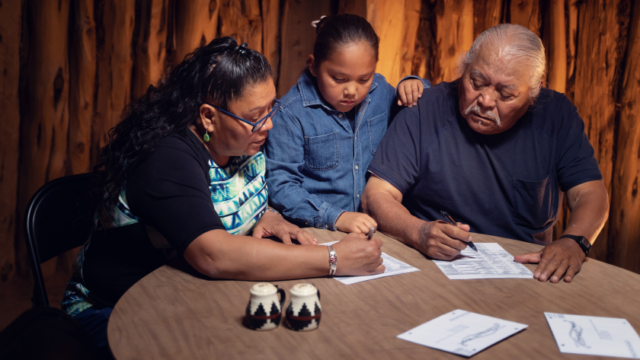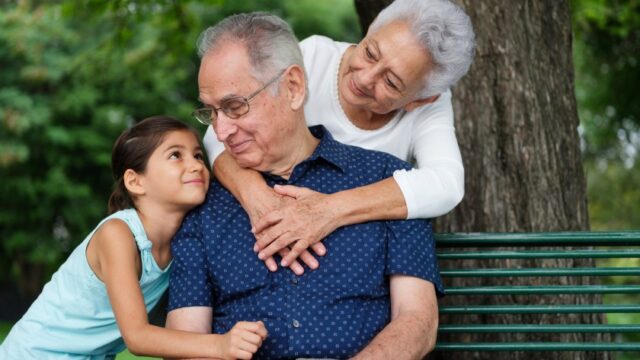Exemplary Programs
Kinship Empowerment Program – DC KinCare Alliance
Download This Resource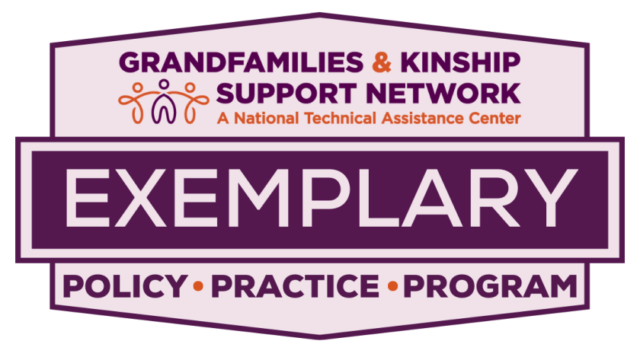
Through its Kinship Empowerment Program, DC KinCare Alliance, a community-based nonprofit organization, serves low-income kin caregivers who raise DC children when the children’s parents are unable to care for them. The founders of the program, both lawyers who had represented DC’s at-risk children in contested custody proceedings, identified an unmet need for tailored legal and related assistance for kinship families, and they began providing services in 2017. In recognition of its work with kinship families and the DC community, the Kinship Empowerment Program has earned the Exemplary Kinship Program designation.
The Kinship Empowerment Program’s core components are:
- Legal representation of caregivers in court custody cases, a free walk-in legal clinic at the DC Superior Courthouse, and a free legal helpline.
- Assistance with applying for and securing public benefits.
- Education of caregivers and the broader community.
The program also engages in impact litigation to redress discrimination against kinship families and advocates before the DC Council, the US Congress, and DC and federal government agencies for changes to laws and policies to better support kinship family needs. This type of litigation and advocacy work is outside the scope of our assessment, yet it is worth mentioning as the program’s service provision meaningfully informs its successful advocacy work.
Eligibility for Services
The Kinship Empowerment Program is primarily designed to serve kin caregivers who need and want to provide safety and security to the children they are raising by formalizing a legal relationship – such as filing for custody or adoption in court. The program is open to grandparents and other kin caregivers (including godparents) of any age whose income is at or below 200 percent of the federal poverty level. They make income exceptions on a case-by-case basis.
Most families contact the program through its free legal helpline. A kin caregiver is on staff and does the initial intake with each caregiver. She then refers the caregiver to the attorneys on staff to provide legal advice and representation. If a caregiver does not meet income requirements, the program is still able to provide brief legal advice.
Service Population
In 2023, the program addressed 319 legal matters for 182 kin caregivers raising 240 children. In its over six years of operation, the program has addressed over 1,000 legal matters for more than 790 caregivers raising more than 1,000 children. Reflecting the demographics of DC, most of the kin caregivers the program serves are African American women, and most are under age 55. While 95 percent of the caregivers the program serves are caring for children outside of the child welfare system, many of the children in their care have had some experience or interaction with that system.
Services
Legal Representation
The attorneys at DC KinCare Alliance represent caregivers seeking legal custody of the children they are raising. Attorneys draft and file court pleadings, help serve parents with court papers, and represent caregivers in court proceedings in the family court of DC Superior Court. All legal representation is free of charge, and the program has a litigation fund to pay for court costs and other litigation-related expenses.
Family Court Legal Clinic
The Family Division at DC Superior Court has a Self-Help Center (SHC) for individuals seeking to represent themselves. Once each week, a DC KinCare Alliance program attorney staffs a free kinship care legal clinic at the SHC to answer caregivers’ questions, provide brief legal advice, and disseminate DC KinCare Alliance’s excellent caregiver resource guide.
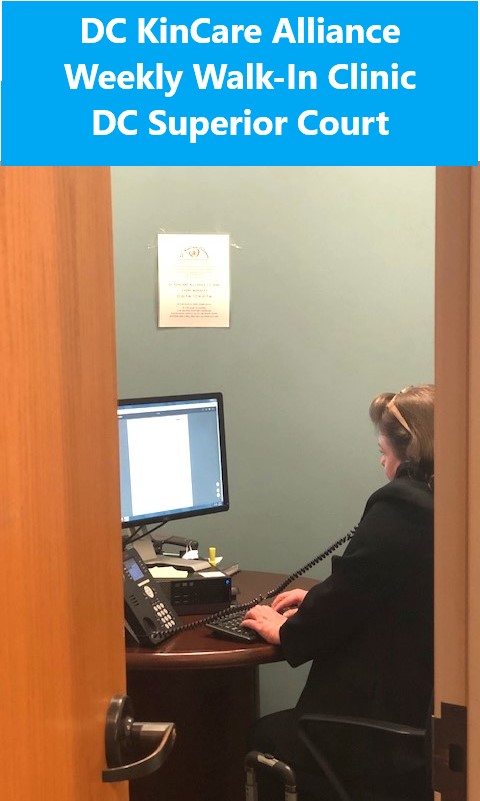
Public Benefits
DC KinCare Alliance lawyers and staff help caregivers complete applications for public benefits, including for DC-specific subsidies, known as the Grandparent Caregiver and Close Relative Caregiver Programs, and file appeals of wrongful denials. The legal relationship between a caregiver and a child can impact benefits and therefore a lawyer’s guidance can be critical. For example, a caregiver may need a custodial power of attorney or court custody order to obtain official documents for the child, get the child medical care, or apply for certain benefits.
Before I met DC KinCare Alliance, every door was slammed in my face when I tried to get help to care for my niece. DC KinCare Alliance changed all of that by opening doors for me and my family. They got me through the roughest; they did all the hard work.
Kin Caregiver
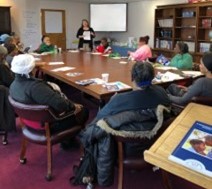
Photo Courtesy of DC KinCare Alliance
Education
Lawyers for the program continuously educate their caregiver clients on legal options and their implications for the family through community seminars called “Caregiver Raise Me Up Groups.” This education piece is vital, as it helps families to thoughtfully pursue the option that makes the most sense for them. While meeting with families to discuss the relevant legal and financial issues is important, so too is having a clear, written guide. DC KinCare Alliance has done an exceptional job compiling an annually updated, step-by-step resource guide for their clients and any kin caregiver in the District of Columbia. Providing information in a written format allows caregivers to read, re-read, and contemplate their path forward.
They don’t just help you; they teach you.
Kin Caregiver
Staff
A staff of five power this community nonprofit. The two co-founders serve as the executive director and the deputy director. The managing attorney handles cases and advocacy work. The intake manager is a DC kin caregiver herself. As a peer, she naturally builds trust and understanding with the caregivers who contact the organization for help. The social services manager links clients with supports and services available in the community.
Key Partners
Among the program’s partners are:
- A Wider Circle – accepts referrals from DC KinCare Alliance and provides kin caregivers with furniture, diapers, and other concrete goods. DC KinCare Alliance, in turn, provides free educational workshops on kinship issues to A Wider Circle’s stakeholders.
- Children’s Law Center – has a reciprocal referral relationship with DC KinCare Alliance and can address related legal issues for these families, including children’s educational needs.
- DC Consortium of Legal Service Providers – a group of over 30 legal services organizations with whom the program works closely to cross-refer cases and provide expertise on issues faced by kinship families.
Sometimes nonprofits feel like competitors because of limited money. It’s never competitive with DC KinCare Alliance. We stick together.
Nonprofit Partner
I’m tremendously impressed with their knowledge of the law and their commitment to getting it fixed.
Lawyer at Local Law Firm
Another stakeholder, a local judge, noted the important role DC KinCare Alliance plays in supporting kinship families. She reported that the local child welfare agency has scaled back on removing children from their homes. Instead, the agency creates safety plans and places the child with a kin caregiver, which addresses child safety but leaves the kin caregiver and child in legal limbo. Since the agency does not have legal custody of the child and the parent’s home is not safe, the caregiver must sue the parent in court to obtain the necessary authority to care for the child. DC KinCare Alliance is there to help these caregivers, and the judge is grateful for their assistance.
Caregiver Involvement
The program is built on robust kin caregiver engagement. The intake manager is a kin caregiver and former client who builds trust with caregivers in the DC community. A unique feature of the program is its Community Board comprised of kin caregivers who meet monthly to inform the program of their needs and concerns and collaborate on how to address them. The Community Board also welcomes outside speakers, including experts in special education services and other topics of interest to the caregivers. Additionally, two members of the organization’s corporate Board of Directors have lived experience as part of kinship families.
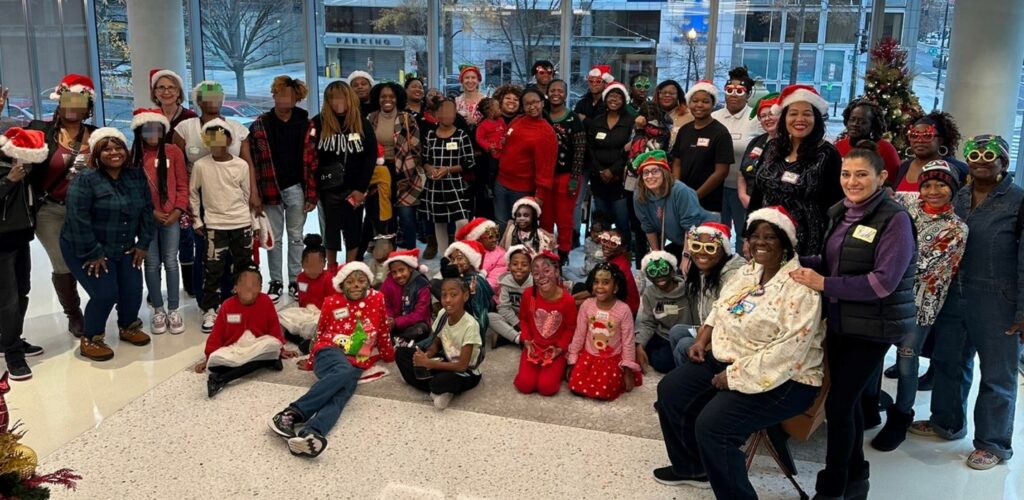
Photo Courtesy of DC KinCare Alliance
Outreach to the Families
Many caregivers come to the program through word of mouth from caregivers the program has helped. Caregivers also come to the program through referrals from family court judges and staff, other legal service providers, community nonprofits, medical providers, and the child welfare agency.
Funding & Sustainability
DC KinCare Alliance’s largest funding source is the DC Bar Foundation. They also receive and attract a diverse array of private foundation support, including from the DC Women’s Bar Association Foundation, the Eugene and Agnes E. Meyer Foundation, the Clark-Winchcole Foundation, the Morris and Gwendolyn Cafritz Foundation, and the Greater Washington Community Foundation. DC KinCare Alliance holds an annual fundraising event to solicit individual donations and receives in-kind pro bono legal services from law firm and corporate attorneys. In terms of sustainability, the organization’s goals are to retain existing funders and attract new ones.
Demonstrating Success & Continuous Quality Improvement
DC KinCare Alliance’s case management software monitors all activity in a client’s case until the work is complete. A section of the software tracks whether client goals are achieved. In 98 percent of cases, all the client’s goals are met.
To assure continuous improvement of their services, staff at DC KinCare Alliance listen to their caregiver clients and make any necessary changes to the program. For example, it was their clients who requested that the program help with public benefits and other social supports, especially during the COVID-19 pandemic. In response, the program expanded beyond legal representation in custody cases to their other supportive work.
Recently, the program developed a satisfaction survey that they distribute to clients after their legal representation concludes. Responses to these surveys will help the program ensure it provides services that meet or exceed client expectations.
DC KinCare Alliance is proud of its ability to be nimble and pivot its operations to focus its work to better support the DC kinship community.
Challenges & Areas for Program Improvement and Growth
A key challenge, according to program staff, is reaching Latino and Asian kin caregivers. While DC KinCare Alliance has access to free translation services, the challenge is building the trust necessary for helping with immigrant concerns, such as the impact immigration status has on accessing public benefits. DC is one of only a handful of jurisdictions whose standby guardianship law includes adverse immigration actions, such as detainment or deportation, as a triggering factor for a standby guardian to be appointed by the court. Nonetheless, developing the trust required to help immigrant caregivers with limited English skills to put these legal documents in place can be challenging.
As with many small nonprofits, additional funding would be helpful to pay for more staff to meet the ever-growing demand for program services.
Lesson Learned
For others seeking to create kinship-serving programs, program staff stress the importance of talking to people and organizations who have already done what you seek to do. Most importantly, they emphasize the need to meaningfully and regularly consult with kin caregivers whom you seek to serve.
Additional Program Resources
Learn More about the Network’s Exemplary Designation
Network staff, along with a subject matter expert, participated in a site visit to this program and are available to answer questions based on this summary. Please complete this short form and we will get back to you.
For information about the steps and criteria of the exemplary designation process, please click here.
